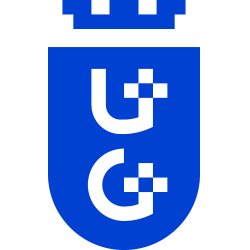https://orcid.org/0000-0001-6465-321X
Aleksandra Ubertowska, literaturoznawczyni, profesor historii współczesnej literatury polskiej na Uniwersytecie Gdańskim. Specjalizuje się w badaniach nad literaturą i sztuką Holokaustu, studiach nad pamięcią, w ekokrytyce. Jest autorką kilkudziesięciu publikacji w języku polskim, angielskim, niemieckim, m.in. monografii Świadectwo, trauma, głos. Literackie reprezentacje Holokaustu (Kraków 2007), Holokaust. Auto(tanato)grafie (Warszawa 2014).

ul. Bażyńskiego 1a 80-952 Gdańsk
Poland
ISNI ID: 0000 0001 2370 4076
GRID ID: grid.8585.0
Aleksandra Ubertowska
Arts & Cultural Studies Review, Issue 4 (62), 2024, pp. 571-585
https://doi.org/10.4467/20843860PK.24.036.21231The aim of the article is to reflect on the concept of the inclusive models of knowledge. The author has taken into account three models: the archive of Jacques Derrida, atlas Mnemosyneby Aby Warburg, analyzed by Georges Didi-Huberman, and fungi/matsutake mushroom which functions and meanings traces in her book The Mushroom at the End of the World: On the Possibility of Life in Capitalist Ruins Anna Lowenhaupt Tsing.
Aleksandra Ubertowska
Arts & Cultural Studies Review, Issue 2 (52) Bio-aktywne rumowisko historii cz. I , 2022, pp. 212-221
https://doi.org/10.4467/20843860PK.22.015.16312The article is a meta-theoretical study devoted to the ecosophical project of Félix Guattari developed in his two books The Three Ecologies i Chaosmosis: An Ethico-Aesthetic Paradigm. According to Aleksandra Ubertowska, the core aim of Guattari’s work is rethinking of the issue of subject which he regards as a process of the non-anthropocentric subjectivisation. Ubertowska devotes particular attention to the notion of transversality, intersection of many processes, social and environmental axes which in Guattari’s work should determine the ecosophical approach. In the late part of the article Ubertowska elaborates on the concept of chaosmosis which Guattari compared to the language of madness, and defines as oscillation between excess of meanings and vacuum of signs.
Aleksandra Ubertowska
Wielogłos, Issue 4 (38) 2018: Studia nad męskościami – (re)interpretacje, 2018, pp. 91-105
https://doi.org/10.4467/2084395XWI.18.036.10200The aim of the text is the examination how the homosexual experience connected with natural spaces such as beach, park, dessert is reflected in diaries and novels by T.S. Lawrence, Witold Gombrowicz, and Michał Witkowski. The author comes to the conclusion that liminal spaces undermine the binaries „nature/culture”, „norm/anomie”, „primordial/fabricated”. Nature defined as „queerness” (the notion coined by C. Sandilands) seems in these works to play the role of counter-narrative of modern culture, establishing a different order of moral values and new, extended (non-anthropocentric) subjectivity that connects species within a set of interactions between plants, water, sand, climate factors.